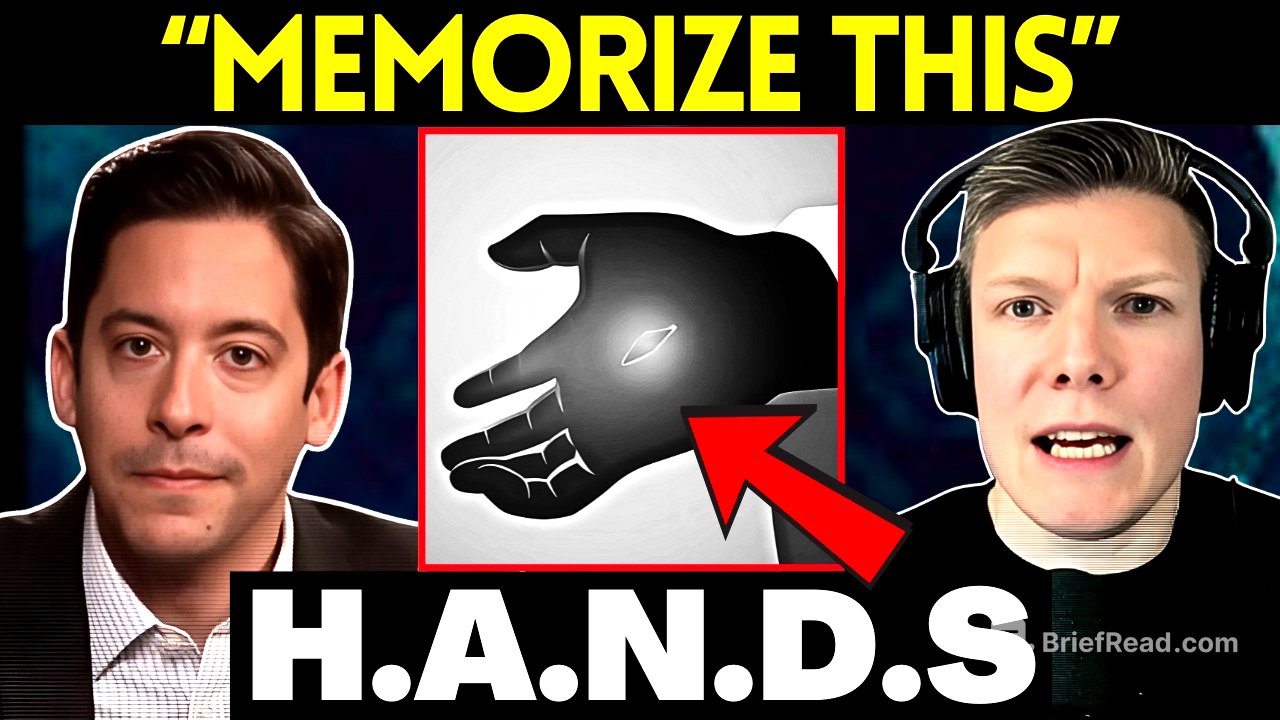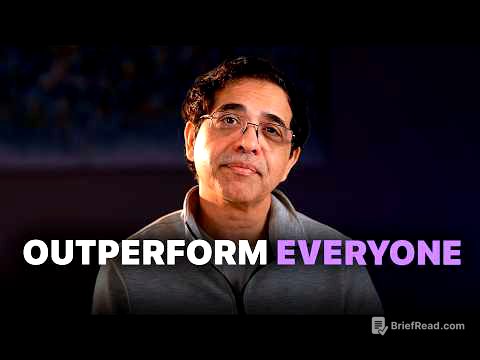TLDR;
This video explains the concept of the Trinity in Christianity, addressing the misconception that it is not scriptural. It emphasizes the divinity of Jesus and the importance of understanding the Trinity as central to the Christian faith. The video introduces the acronym "HANDS" (Honors, Attributes, Names, Deeds, Seat) as a framework for understanding the divinity of Jesus, explaining each component in detail with scriptural references. It concludes by encouraging viewers to support businesses that align with their values.
- The Trinity is essential to Christianity.
- The acronym "HANDS" (Honors, Attributes, Names, Deeds, Seat) supports Jesus' divinity.
- Jesus shares qualities and roles with God.
Introduction [0:00]
The video introduces the topic of the Trinity and its importance in Christianity. It references a discussion with Wesley Huff on the Michael Nolles show, where misconceptions about the Bible were addressed. The video aims to explain the divinity of Jesus and the significance of the Trinity, building upon Huff's introduction of the "HANDS" acronym. The presenter will provide a detailed explanation of the acronym to support the argument for Jesus' divinity.
The Trinity in Scripture [0:59]
Wesley Huff argues that trinitarianism is essential to Christianity, highlighting the Father sending the Son through the Spirit to empower believers. He addresses the common claim that the word "Trinity" isn't in the Bible, pointing out that the word "monotheism" isn't either, yet the Bible is clearly monotheistic. Huff explains that early Christians developed the concept of the Trinity to reconcile the descriptions of the Father, Son, and Spirit as Yahweh God, while maintaining belief in one Yahweh. He references scholars Rob Bowman and Ed Kamjowski and their acronym "HANDS" (Honors, Attributes, Names, Deeds, Seat) to describe how the Father, Son, and Spirit are all given the same divine characteristics. Huff also suggests that the concept of God's complex unity is present throughout the Old Testament, citing examples such as Yahweh appearing to Abraham and the presence of God in the Shekinah glory. He concludes that the Trinity is fully revealed in the New Testament, particularly in descriptions of Jesus and the Holy Spirit.
Honors [6:00]
The first aspect of the HANDS acronym is "Honors," emphasizing that worship belongs to God alone, as stated in Deuteronomy 6:13. The presenter notes that Jesus accepts worship in multiple instances, such as in Matthew 14:33 when the disciples worship him after he calms the storm, and in John 20:28 when Thomas proclaims, "My Lord and my God." Additionally, Hebrews 1:6 commands angels to worship Jesus. The presenter argues that if Jesus were not God, accepting worship would be blasphemous, but Jesus welcomes it, indicating that he shares in the honors due to God.
Attributes [7:28]
The second aspect, "Attributes," focuses on the qualities that Jesus possesses, which are exclusive to God. According to John 1:1, Jesus is eternal, being the Word that was with God and was God from the beginning. Jesus also claims to be all-powerful in Matthew 28:18, stating that all authority in heaven and on earth has been given to him. Furthermore, Peter acknowledges Jesus as all-knowing in John 21:17. The presenter concludes that these attributes are not human traits but rather the fingerprints of divinity, demonstrating that Jesus shares the attributes of God.
Names [8:50]
The third aspect, "Names," highlights the titles given to Jesus that are reserved for God alone. In John 20:28, Thomas calls Jesus "My Lord and my God." Acts 1:24 addresses Jesus as Lord in a divine sense, echoing Old Testament names for Yahweh. Revelation 19:16 crowns him King of Kings and Lord of Lords, a title God establishes in Deuteronomy 10:17. Jesus is also called Savior in Luke 2:11 and the First and the Last in Revelation 1:17, a name God uses for himself in Isaiah 44:6. These divine claims place Jesus on equal footing with the Father, indicating that Yahweh is a tripersonal being.
Deeds [9:56]
The fourth aspect, "Deeds," examines the actions that Jesus performs, which are characteristic of God. John 1:3 states that all things were made through him, establishing Jesus as the creator. Hebrews 1:3 declares that he sustains all things by his powerful word. Jesus also forgives sins, as seen in Matthew 9:1-8, and gives eternal life, according to John 5:21. The presenter concludes that these deeds—creation, sustenance, forgiveness, and life-giving—are God's deeds that Jesus also performs, suggesting that Jesus is more than just a moral teacher or prophet.
Seat [11:09]
The final aspect, "Seat," refers to Jesus sharing God's throne. Hebrews 8:1 states that Jesus is seated at the right hand of the Majesty in heaven, indicating that he shares the throne itself. Revelation 3:21 has Jesus saying that he sits down with the Father on His throne. Revelation 5:13 shows all creation worshiping the Father and the Lamb (Jesus) together. The presenter explains that in the ancient world, sharing the king's throne meant sharing his authority. Jesus is not merely near God but is on the throne of God, ruling and reigning over all creation as God. He is the Alpha and the Omega, the creator, sustainer, redeemer, and finisher of the human story.
Conclusion [12:14]
The presenter uses an analogy of Clark Kent and Superman to illustrate how Jesus's actions and attributes reveal his true identity as God, even without explicitly stating it. The presenter adds that Jesus's discretion in revealing his identity is explained by the plot of the Gospels, where he often tells people not to reveal his true identity because his hour has not yet come. The original Christians understood Jesus to be the creator, sustainer, and redeemer. The video concludes with a call to action, encouraging viewers to support businesses that align with their values by switching to alternative, American-made products.






![Learn Python - Full Fundamental Course for Beginners | Python Tutorial for Beginners [2019]](https://wm-img.halpindev.com/p-briefread_c-10_b-10/urlb/aHR0cDovL2ltZy55b3V0dWJlLmNvbS92aS92X1M2NGtsZHJ5Yy9ocWRlZmF1bHQuanBn.jpg)


